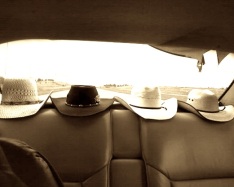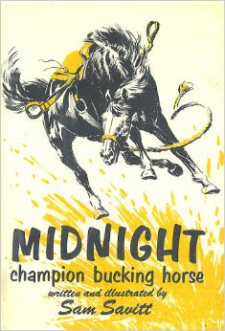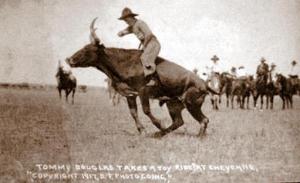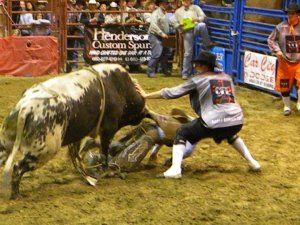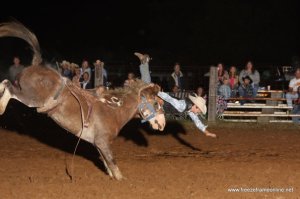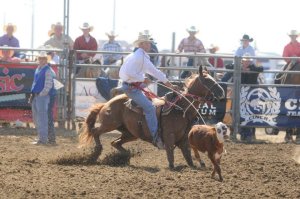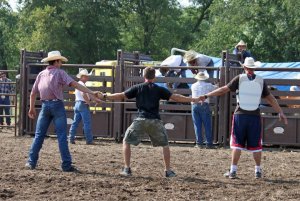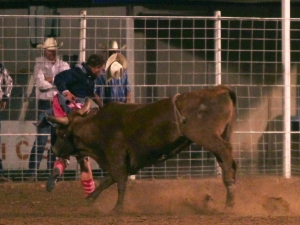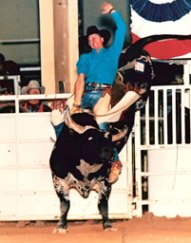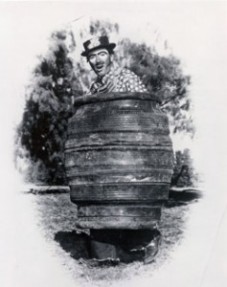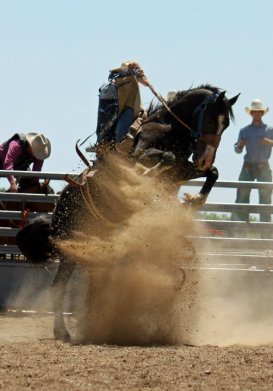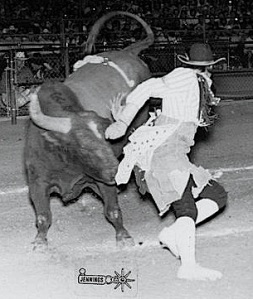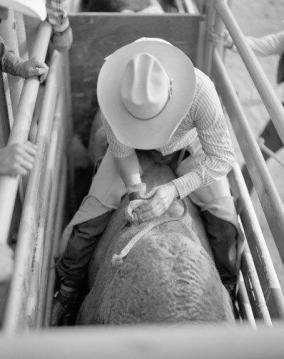
Growing up, I always wondered what it was like to climb down on a bull. To feel the potential energy contained in their muscles, to feel adrenaline pulsing as you lower yourself down on him in the chute. Baxter Black told his son: “The difference between a mechanical bull and a real one is the feeling you get when you look down!” The curiosity is something I dwelt on, but now that I have firsthand knowledge, my prediction, my thought of what it was like, was way off. When something is that close, when you can see it, touch it, feel it, and all an arms length away, what you thought was close to reality, turns out to be a faint whisper. Yahweh’s attributes were real
in the OT, but were high def. on the cross!
“For God was pleased to have all his fullness dwell in him, and through him to reconcile to himself all things, whether things on earth or things in heaven, by making peace through his blood, shed on the cross.” Colossians 1.19-20
The attributes of God were on display throughout the life of Christ, but never more clear than in his death and resurrection.
It was on Calvary, the Son of God hand’s were fixed to the cross, his power seemingly absent. During his ministry people exclaimed, “He does all things well” (Mark 7.37), now while on the cross he was mocked, “Be saved others, but he can’t save himself.” (Mark 15.31) Three days later, it was the power of God that left the tomb empty.
It was on Calvary, where Jesus face was looking down from the cross, displayed the blessing of God. During his ministry, Jesus face was before the outcasts and the downtrodden. Speaking in parables about the blessed Kingdom of God, preaching sermons that began with words like “blessed are you” and “the kingdom of God is like…” Now upon the cross, beaten and bloodied, what had been a blessing to this world, hung there as cursed (Deut. 22). Three days later, his face would appear before his disciples again. Some would recognize him and others wouldn’t, but it was no doubt that blessing took on a whole new meaning.
It was on Calvary, where the long nose of God, his patience with humanity was shown. Patience is that line between love and anger. Nowhere was God’s love and anger put on display more vividly in the work of his Son on the cross. God’s justice and his wrath mandated that sin be punished, therefore a sacrifice was needed. God’s love offered forgiveness and relationship, therefore a sacrifice was provided. In the cross we see his patience on display, understanding that the “fullness of time had come”, sin was to be taken away. Jesus offered both the sacrifice as needed and the sacrifice provided. Our sin was placed on him, as he took our place as needed. God’s love and our sin put him there. God had been patient with man, but his anger toward sin couldn’t wait any longer. Thank God for the sacrifice provided.
It was on Calvary, where the eyes of Jesus fell upon those gathered at the foot of the cross. Just as Yahweh’s eyes searched for those committed to him, Jesus eyes wandered from his elevated perch. During his ministry, Jesus looked into many people’s eyes, studying their attitudes and actions. The beaten and shamed eyes of the Samaritan Woman, the curious yet confident eyes of Nicodemus, the blind eyes in John 9, the proud eyes of the Pharisees. From the cross, he looked out and saw the condemning eyes of the Jewish Rulers, the dutiful eyes of the Romans, the tear-filled eyes of the women. Some renaissance painters used the cross in their paintings as a division line, placing believers on one side and unbelievers on the others. They used the cross in art in the same way that it works in eternity. But on that day, Jesus eyes from the cross scanned the crowd, the criminals, the soldiers, and knew what was in their hearts. “Father, forgive them for they know not what they are doing!”
It was on Calvary, the ears of the Son of God heard both taunts and desperation in the same way the ears of Yahweh heard the cries of his people. During his ministry cries of desperation rang out from the crowds: “Son of David Have mercy on Me!” Upon the cross, the shouts rang out in his direction: “Come down from the cross and save yourself!” and “He saved others but he couldn’t save himself!” But amidst the taunts, he heard the cry of distress: “Jesus, remember me when you come into your kingdom.” A call came from a fellow condemned. The cross is where the desperate come to call out.
It was on Calvary, where the nails rested between his radius and ulna. The arms of Jesus, stretched out and fixed to the patibulum, saving men like the arm of the Lord had in the Old Testament. During his ministry, he reached out to people, offering salvation from blindness, muteness, deafness, and paralysis. On the cross, he saved us not from the physical that brings death once, but from the spiritual deficiency known as sin, that causes eternal death. With his arms stretched wide, Jesus displayed God’s arms of salvation.
On Calvary, God’s attributes were manifested in the death of Jesus Christ. His eyes, ears, hands, arms, face, and nose were all on display as Jesus bore the nails, the sins, and the cross and gave up his life.
It was the Invisible God made flesh, animated before His people.


